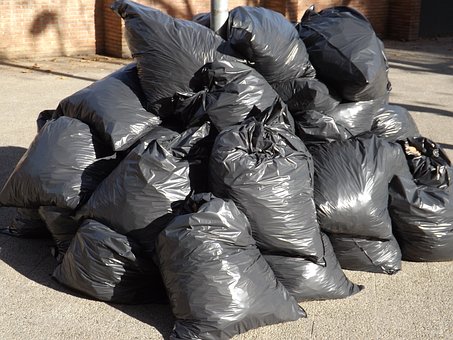Welcome to KDS Environmental
Reliability
100%
Affordability
100%
Professionalism
100%
Reputation
100%
 It is obvious that the quantity of household waste produced is increasing year after year at a worrying rate, and federal governments are under pressure to expand existing garbage dumps or construct new ones to accommodate the waste that is being produced.
It is obvious that the quantity of household waste produced is increasing year after year at a worrying rate, and federal governments are under pressure to expand existing garbage dumps or construct new ones to accommodate the waste that is being produced.
What is Hazardous Home Waste?
Home waste is leftover from household products. Dangerous household waste are household products which contain chemicals that have the potential to impact plants, the health of human beings and animals and are detrimental to the environment when dealt with poorly
Incorrect management of household waste has the potential to be extremely detrimental to the environment, individuals, and animals. What many of us may not understand is that many of those typical household products contain corrosive, toxic, or combustible chemicals that can be hazardous to the environment if not handled or managed appropriately.
Dangerous household waste should not be gotten rid of in the same way as regular waste. For example, gasoline can be buried in the ground, can impact rivers, and find its way into drinking water. The hydrocarbons in motor oils or pesticides have the potential to bio-accumulate in freshwater fishes and can find its way in the food chain. Burning contaminated materials causes the release of toxic chemicals and fumes in the air. When released into the environment, these chemicals are dispersed over large areas, consequently affecting the health of persons over a wider area.
A few of these chemicals stay in the systems of plants and animals for a long time and may get in the food chain when the affected plants and animals are consumed.
 Bioaccumulation of hazardous compounds in the systems of plants, animals, and human beings has the potential to impact their reproductive lives, development, impair the function of different organs such as the liver and kidneys, impact the performance of the central nervous systems and immune systems of human and animals and some have been listed as known carcinogens.
Bioaccumulation of hazardous compounds in the systems of plants, animals, and human beings has the potential to impact their reproductive lives, development, impair the function of different organs such as the liver and kidneys, impact the performance of the central nervous systems and immune systems of human and animals and some have been listed as known carcinogens.
How Can You Tell a Product is Hazardous?
Read the labels of products. In New Berlin and other parts of the country, labels are required for all products. These should provide information on the constituents of the products, consisting of signs and words, to suggest the hazard to animals, human beings, and the environment if mishandled.
How To Tell If Products Are Hazardous?
Constantly read the label of products in your household and make it a habit of reading the labels of a product before making the decision to acquire them.
What Can You Do to Manage Contaminated Materials?
Purchase Eco-friendly Products – Experts agree that the very best way to manage waste is to not produce it in the first place. You can start by avoiding the purchase of products which contain chemicals that are harmful to human beings, animals, and the environment. Purchase those products that are eco-friendly or friendly to the environment.
Safe Product Storage – Ensure that hazardous products are kept in a safe place, that their containers are not damaged, do not have any leaks to lower the threat of contaminating water sources, land, human beings, animals, plants, and the environment. Ensure that corrosive products like acids are saved in different areas from other hazardous products.
Check products regularly to ensure that there are no leaks and broken covers or bulging sides.
Constantly store products in their initial containers to avoid unintentional usage.
Ensure that these products are saved in a place where children and animals have no access to them.
Disposal of Products – Disposal of products should always be the last option. Why? Since there are no safe ways of disposing of contaminated materials. You can avoid the problem of contaminated materials disposal by either selecting eco-friendly products, recycling the product, giving the excess products to friends, next-door neighbors, or family or purchasing smaller sized volumes of the product.
 If, however, disposal is inescapable, then you should dispose of the waste in the manner recommended on the label.
If, however, disposal is inescapable, then you should dispose of the waste in the manner recommended on the label.
Although there are laws to regulate the handling and use of large amounts of contaminated materials, the existence of laws to regulate the typical small quantities generated at the household is non-existent. For this reason, the obligation for the management of contaminated materials falls directly on the shoulders of the contaminated materials generators.
Protection of the environment can only occur when you contribute in finding creative ways to re-use, recycle, or lower waste. This is necessary if we are to secure the environment and health of future generations. Bear In Mind That Waste Management is Your Business, My Business, Our Business.
if you are in New Berlin or Santa Clara, Sweet Home, Zuehl, Olmos, Bexar, Friendly Corner, Saint Hedwig, Muehlsville, La Vernia, Marion, call us now!
We are experts in environmental clean-up, and we can help you with eradicating dangerous items in your home. Our number one goal is to ensure that the environment is safe for everyone to live in, and your health is protected. Get in touch with us today and get a free, no-obligation quote.
We are the best eco-friendly company you can trust in Santa Clara, Sweet Home, Zuehl, Olmos, Bexar, Friendly Corner, Saint Hedwig, Muehlsville, La Vernia, Marion and New Berlin.